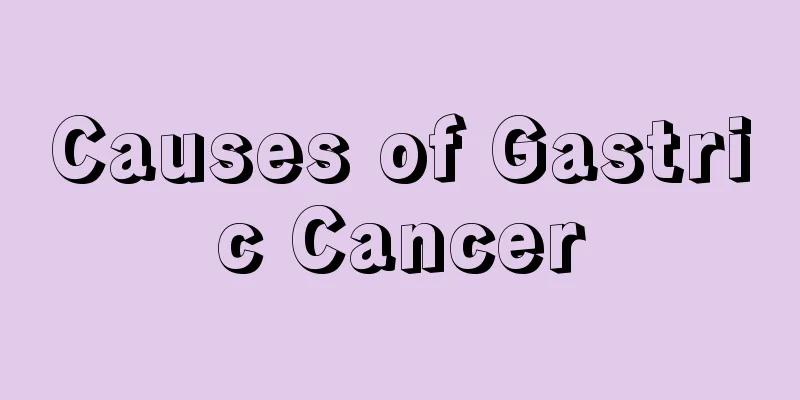Causes of Gastric Cancer

|
Although a lot of research has been done on the etiology of gastric cancer, the exact cause remains unknown. Currently known factors associated with gastric cancer include: 1. Lifestyle and environmental factors Studies have found that long-term consumption of smoked, pickled, salted and fried foods is positively correlated with the occurrence of gastric cancer. Smoked foods produce polyaromatic hydrocarbons during the smoking process, among which 3,4-benzopyrene is a recognized strong carcinogen. In the process of pickling and drying meat and fish, proteins are decomposed into amino acids, among which proline and arginine are decarboxylated to form putrescine, which reacts with nitroso compounds under appropriate conditions to form N-nitroso compounds, which are highly carcinogenic. The high salt in salted foods can not only directly damage the gastric mucosa, but also provide precursors for the generation of N-nitroso compounds. Fried foods contain a large amount of heterocyclic amines, and animal experiments have shown that more than half of the heterocyclic substances are highly carcinogenic. Eating fresh fruits and vegetables and coarse dietary fiber foods has a protective effect in preventing the occurrence of gastric cancer. Japan is one of the countries with the highest incidence of gastric cancer, and the United States is one of the countries with the lowest incidence of gastric cancer. Immigrant epidemiological data show that the incidence of gastric cancer among Japanese immigrants and their descendants in the United States is significantly lower than that in Japan, suggesting that environmental factors play a certain role in the incidence of gastric cancer. In addition, the difference in the incidence of gastric cancer between the same country and different regions in the same country also shows that environmental factors play a certain role. 2. Helicobacter pylori (Hp) infection Some research reports indicate that there is a clear relationship between gastric cancer and Helicobacter pylori infection, and the risk of gastric cancer is closely related to the level of Helicobacter pylori IgG antibodies. If the Helicobacter pylori infection period is more than 10 years, the risk of gastric cancer is higher. Studies have found that the positive rate of anti-Hp antibodies in the serum of gastric cancer patients is 70%-92.2%, while that of the normal control group is only 49%~69.9% (P<0.01). However, the Hp infection rate of patients with cardia cancer is no different from that of the healthy control group. 3. Precancerous lesions Studies have found that the process of normal human cells becoming cancerous is a transition from quantitative change to qualitative change. There is a transition process between benign lesions and malignant lesions, that is, there are borderline lesions. From a biological point of view, precancerous lesions are only the early stage of the process of cancer development. It is a non-specific process and a reversible process. Studies have shown that some chronic diseases of the stomach have the potential to become cancerous, which are called precancerous diseases, including atrophic gastritis, adenomatous polyps, residual gastritis, gastric ulcers, etc. When such diseases show atypical hyperplasia of the mucosal epithelium and intestinal metaplasia in histopathology, they are more closely related to gastric cancer. Atypical hyperplasia of the mucosal epithelium and intestinal metaplasia are called precancerous lesions. 4. Genetic factors Gastric cancer shows a certain clustering in a few families, and changes in multiple oncogenes and tumor suppressor genes can also be detected when gastric cancer occurs and progresses, showing that gastric cancer has a certain correlation with genetic and gene mutations. Epidemiological research data show that relatives of diffuse gastric cancer have a higher risk, with a relative risk of 7.0, while intestinal gastric cancer is 1.4, which is no significant difference from the control group. Despite this, most scholars still believe that it is the interaction between genetic factors and dietary habits and living environment factors that promotes the occurrence of gastric cancer. |
<<: Histopathological types of lung cancer
>>: International Histological Classification of Gastric Cancer
Recommend
What are the benefits of acupoint massage
Massage for health care is now quite popular, and...
Is TCM effective in treating liver cancer? What are the advantages of TCM in treating liver cancer?
The liver has metabolic functions and can excrete...
Can patients with kidney stones have sex?
Many patients with kidney stones wonder if couple...
What causes a burning sensation in the stomach?
In life, many people will have some stomach disea...
How to preserve fresh peppers for a long time
Chili is one of our favorite condiments. Ordinary...
Sweating in the middle of the night
Many people have bad living habits or hidden heal...
How to detect skin cancer by yourself?
In the early stage of skin cancer, you can judge ...
How can we effectively prevent melanoma
How can we effectively prevent melanoma? Melanoma...
What is the cause of green and shapeless stool
Many people are pursuing health. For the sake of ...
How much sleep is normal for an 8 month old baby?
Babies under one year old sleep more every day. T...
B-ultrasound shows little urine retention and no fetal heartbeat
An ultrasound examination is performed around sev...
What are the symptoms of neurosis?
Disease is a very common thing in life. Although ...
Can laser treatment of acne eradicate it?
I believe that many people with acne on their fac...
How to wash clothes stained with ink
How to wash clothes stained with ink? I believe e...
Is liver cancer contagious? Share knowledge about the contagiousness of liver cancer
Fundamentally speaking, liver cancer is not conta...









